Iran's Economy On The Brink: MPs Issue Dire Warnings
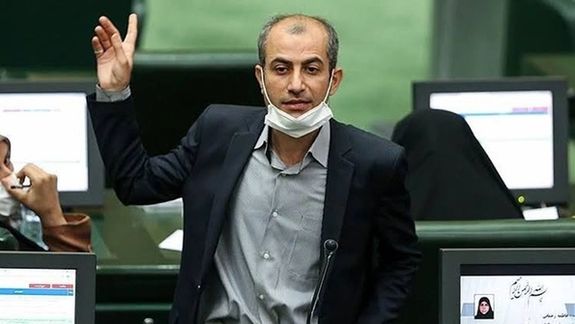
In stern cautionary statements, two Iranian members of parliament have raised concerns about the precarious state of Iran's economy.

In stern cautionary statements, two Iranian members of parliament have raised concerns about the precarious state of Iran's economy.
Mojtaba Tavangar, representing Tehran in the parliament, stressed on Sunday that without a comprehensive and robust plan to address the nation's economic challenges, attempts to alleviate poverty through wealth distribution or subsidies would prove futile in the face of potential currency shocks.
"If we do not have a plan and simply want to reduce poverty by distributing wealth or distributing subsidies, then, with another foreign currency shock, all the work that we have done to reduce poverty will be undone," warned Tavangar.
As a member of the economic commission of parliament, Tavangar went on to criticize the government's apparent weaknesses in managing the economy. He pointed to alarming indicators such as continued inflation, the soaring cost of food, skyrocketing house rents, and the overall high cost of living as the key pressing issues plaguing the nation.
In agreement with Tavangar, Mohammad Vahidi, the representative of Bojnord in the parliament, also warned about the potential consequences of the current economic trajectory. Vahidi sternly cautioned that the country could be led to the brink of economic collapse if the current governance approach is not re-evaluated.
Official reports have lent weight to the parliamentarians' warnings, reflecting the severity of the economic situation in Iran. The Parliament Research Center recently published a report stating that 75% of the three lowest income deciles lack any support, confirming an increase in the number of poor individuals in the country.
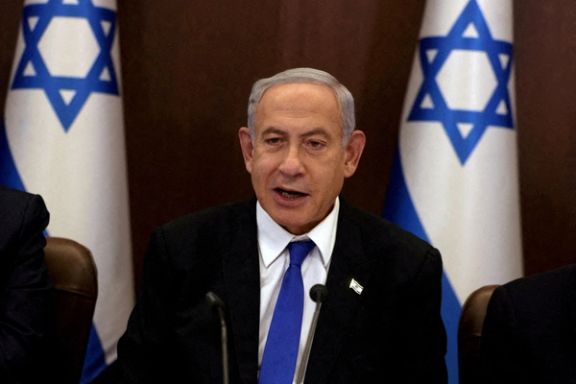
Israel's army would rally and unify in the face of any threats by the Lebanese Iran-backed Hezbollah, Israeli Prime Minister Benjamin Netanyahu said on Sunday.
Netanyahu made the remarks during a cabinet meeting, amid growing tensions along Israel's northern border with Lebanon and as the country's military faces threats to its cohesion over the government's attempts to weaken the judiciary.
Since Israel’s current political crisis began earlier this year, Iran and its militant proxies in the region have rallied to take advantage of any weaknesses. Large-scale military clashes took place between the Palestinian Islamic Jihad, a Hezbollah ally, and Israel in early April.
“As for (Hezbollah leader Hassan) Nasrallah's bunker threats, we are not impressed by them. On the day we are tested, he will find us standing together, shoulder to shoulder, and even Nasrallah knows that neither he nor Lebanon should put us to the that test.”
Reuters reported last week that Iranian military and security officials recently held a meeting with Hezbollah and Palestinian Hamas to see how they can take advantage of Israel’s internal problems. The Revolutionary Guard’s (IRGC) Quds Force attended the three-hour meeting, as Israel’s foes see an opportunity in Israel’s political turmoil related to Netanyahu’s judicial reforms.
Iranian government media and officials have been highlighting large protests in Israel against the judicial reforms by heralding the imminent collapse of “the Zionist entity.” They have also been openly encouraging Palestinian and other militants to intensify their attacks inside Israel.
With reporting by AP, Reuters
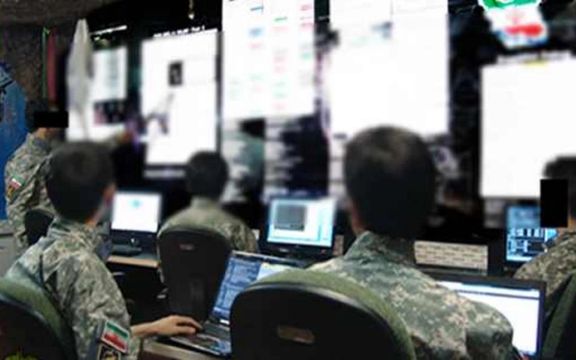
Israel’s Shin Bet internal intelligence agency says it has thwarted a phishing campaign by Iran targeting primarily Israeli civil servants and researchers.
On Sunday, the agency disclosed some information about the LinkedIn-based campaign to infect the victims’ computers with malicious software and gather information.
The Iranians created false profiles posing as real Israeli citizens with whom the targets may have had personal or professional interactions. Then, they initiated conversations on LinkedIn and continued correspondence through email, according to the agency.
During their correspondence, the impostors would send an invitation to a conference or other digital files of interest, such as a study or article. Clicking on these links would then infect the recipient's computer with a malicious file that would grant the Iranian entity comprehensive access to the compromised system, enabling remote takeover and complete exposure of the information contained within.
Israeli-based news channel i24NEWS cited Shin Bet as noting that he hackers originally compiled the necessary information for the LinkedIn profiles from social media networks, allowing them to establish a connection and then engage in correspondence tailored to the target's specific interests.
The campaign is just the latest in a series of similar operations by the regime’s cyber agents against Tehran’s archnemesis Israel. Iran-sponsored cyberspies have recently boosted their techniques, using fake personas of real people to add credibility to the phishing emails designed to deliver malware.
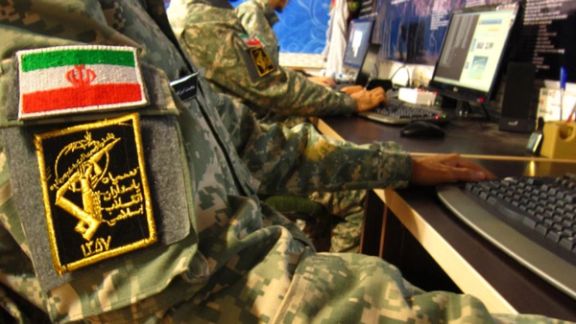
Mehdi Saremifar, a Canada-based sci-tech journalist, told Iran International on Sunday that the cyber-attacks by the Iranian regime’s hackers during the past several years indicate that several organizations or institutions in Iran are coordinating their efforts for such campaigns. He says the country’s intelligence ministry and the cyber army of the Revolutionary Guards are among the units involved in the regime’s warfare in cyberspace.
According to Saremifar, Iran’s attacks are mainly aimed at phishing and getting ransom as well as some for military intel, a case of which led to a drone attack against an oil tanker associated with an Israeli billionaire off the coast of Oman in November 2022.
According to a 2022 report by Security firm Proofpoint, Iran-aligned agents deployed a social engineering impersonation technique, informally called Multi-Persona Impersonation, in mid-2022 in which the threat actor uses at least two stolen or hijacked personas on a single email thread to convince targets of the legitimacy of the campaign. The personas used are real people that the target knows and trusts.
Last August, Meta, formerly the Facebook company, removed at least two Iranian cyberespionage groups that were targeting academics, activists, journalists and other victims. Also in 2022, Iranian hackers -- named Sharp Boys -- targeted several travel booking sites of an Israeli company and stolen personal information of more than 300,000 Israelis.
Earlier in the year, researchers at CheckPoint's Incident Response Team said an Iran-linked group calling itself Moneybird has deployed a ransomware against Israeli organizations.
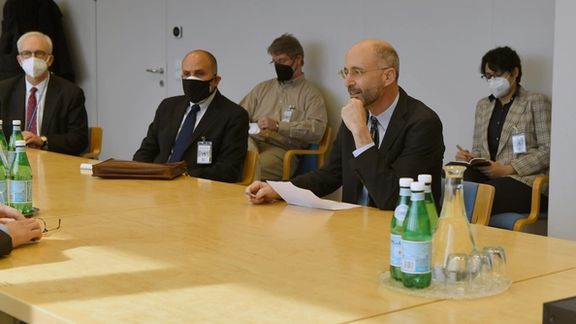
A conservative newspaper editor in Tehran says that Iranian hardliners exposed US envoy Robert Malley’s alleged secret contacts with Islamic Republic officials.
Masih Mohajeri, a cleric who is the editor of Jomhuriye Eslami (Islamic Republic) conservative newspaper in Iran told a local website that “merchants of sanctions” in Iran who always tried to sabotage relations with the West, exposed Malley, who has been suspended from the State Department and his security clearance is under investigation.
‘Merchants of sanctions’ in Iranian jargon are those in the power structure within the regime who reap profits from foreign sanctions, by using Iran’s isolation to set up their business monopolies in the country. Chief among them are allegedly senior officers of the Revolutionary Guard and their circle of hardliners, who currently control the parliament, the presidential administration, and the fearsome judiciary.
Although Mohajeri belongs to the first generation of Islamist revolutionaries who overthrew the monarchy in 1979, he is known as a relatively independent elder, who occasionally criticizes officials and extremists within the regime.
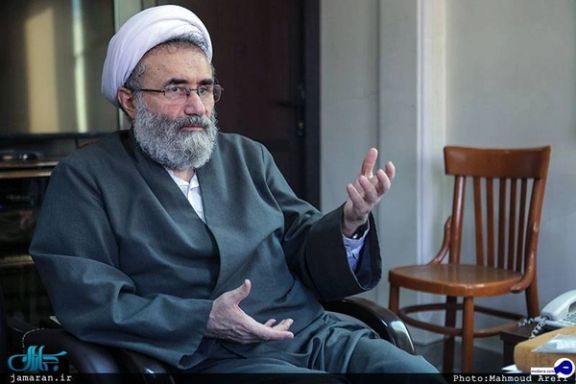
“Malley held negotiations with some Iranian individuals, in such a way that problems were reaching a point [of resolution], which perhaps even American officials were not fully aware. But domestic hardliners and merchants of sanctions exposed the information related to these talks, to sabotage them,” Mohajeri was quoted as saying. He did not claim to have any insider information for accusing the hardliners, but his full interview has not yet been published.
Mohajeri went on to accuse hardliners of a series of malign activities within Iran and interference in domestic politics.
Iran International first reported June 29 that Malley was suspended from his position as US envoy for Iran, his security clearance was suspended and he was under investigation related to his handling of classified documents. The Involvement of the Federal Bureau of Investigation was also reported, although until now no official details have been announced, except that Malley is on “unpaid leave.”
Biden administration officials Friday went to Capitol Hill to brief members of the House Foreign Affairs Committee, but they revealed nothing about why Malley was suspended and what is the investigation about. According to the committee chairman Rep, Michael McCaul (R-TX), officials claimed that due to the US Privacy Act they could divulge any information while the investigation is still ongoing.
To add to the mystery, Tehran Times an Iranian regime mouthpiece has extensively reported on Malley’s saga, appearing to have some insider information. The paper reported the exact date of Malley's suspension as April 21, when Malley was informed by the Diplomatic Security Department that due to his not having maintained classified documents, his security clearance was suspended. No one else had an exact date as to when Malley’s security clearance was suspended.
Benny Avni, a columnist at the New York Sun commented about the briefing, pointing out that “the briefers apparently shed no light on Mr. Malley’s mysterious removal from his post, the stripping of his security clearance, or the purging of his official Twitter account.”
He also quoted Jason Brodsky, the policy director at United Against a Nuclear Iran as saying that the State Department has a communication problem. “They can’t announce that the nuclear deal is dead. They can’t announce there is a deal. And they can’t provide anything on Malley. Their dodge, duck, and weave act is awkward.”
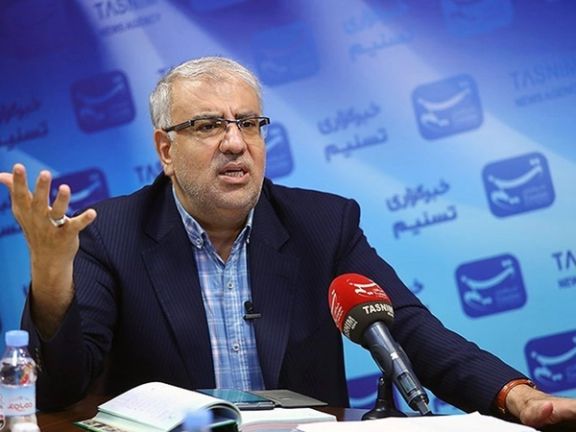
Iran’s oil minister says Tehran will pursue its rights over a disputed maritime field in the western tip of the Persian Gulf shared with Kuwait and Saudi Arabia if they shun cooperation.
“If there is no willingness to cooperate, Iran will pursue its rights and benefits, including the exploitation and exploration of the Arash gas field, and will not tolerate any violation of its rights,” Javad Owji said on Sunday, according to the Oil Ministry’s SHANA news agency.
Called Arash in Iran and Durra or Dorra by Saudi Arabia and Kuwait -- the offshore field was discovered in 1967 and is estimated to have a total proven reserves of around 310 million barrels of oil and 20 trillion cubic feet of gas.
Kuwait and Saudi Arabia insist that Iran has no right over the field, claiming “exclusive” right, while Iran says any development without its consent is “illegal” according to international laws as it claims 40 percent of the field located in its territorial waters.
Kuwait's oil minister Saad Al Barrak told SkyNews Arabia July 27 that his country will start drilling and begin production at the gas field without waiting for border demarcation with Iran, reiterating the two Arab countries’ position that Iran must validate its claim to the field by demarcating its own maritime borders first.
As controversies surrounding the case are escalating, the disputed maritime field in the Persian Gulf has become a litmus test for the recent détente between Tehran and Riyadh.
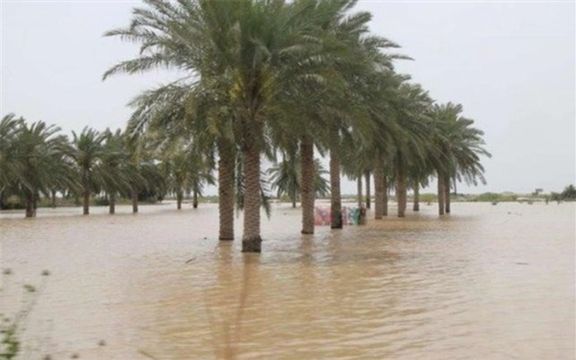
Heavy rainfall and storms in Iran’s Sistan-Baluchestan have caused a spate of flash floods, dealing a heavy blow to the infrastructure of the southeastern province.
Recent monsoon rains in dozens of cities have led to flooding of local rivers, closure of at least 42 roads and damage to hundreds of hectares of palm groves – an important source of income in the poor and otherwise arid region.
The deluge from the Kajou River in the south of the province has been the biggest during the monsoon seasons of the last 20 years, says the governor of the city of Qasr-e Qand Hashem Zehi. Last summer, monsoon rains and floods wreaked havoc in many provinces, with dozens dead or missing, amid the worst annual drought in recent memory.
Ghanbar Narui, an agricultural official in the district of Fanouj, said Sunday that 900 palm trees with dates have been uprooted, leading to a heavy loss in the date harvest in 350 hectares of palm groves in the region. The livelihood of the residents depends on the date trade. According to the official, Fanouj has a total of 2,300 hectares of palm groves, out of which 1,900 hectares produce dates.
Sistan and Baluchestan is the poorest province of Iran with a population of around 4 million, including 700,000 Afghan nationals.
During the past years, this region has experienced many crises, including shortage of fuel, bread, and drinking water, as well as drought, widespread unemployment and increasing poverty.
In the recent popular protests following the death in custody of Mahsa Amini, around 120 civilians were killed by security forces in the province, the highest number of victims among 31 provinces.